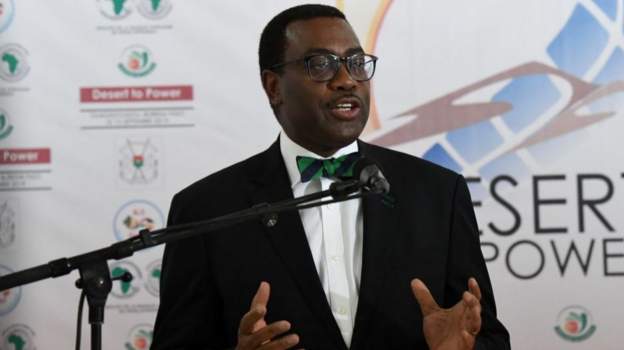Between 2012 and 2021, industry’s contribution to the Ghana Gross Domestic Product (GDP) grew from $11.9 billion to $18.7 billion, driven upwards by an upsurge in the value-added of manufacturing in GDP.
This almost tripled to 6.6%, from 2.5%, the African Development Bank has stated in its brief on Ghana.
Likewise, gross fixed capital formation strengthened from $7.4 billion in 2012 to $12.2 billion in 2021 (constant 2010 prices), a 65% increase. The increase for all African Development Fund countries was 49%.
In the same period, the economic diversification index increased from 0.77 to 0.81.
Finally, Ghana’s score on the logistics performance index rose from 2.51 to 2.57 over the same time.
Despite these achievements, however, AfDB said the country’s global competitiveness index score dropped from 3.79 in 2012 to 3.58 in 2021.
Over 2012–2021, Ghana’s industrialisation was guided by the Ghana Industrial Policy of 2011, which was complemented by the Made-in-Ghana Policy and a 10-point agenda for industrialisation as of 2016.
These policies were implemented through various programmes, including the Industrial Sector Support Programme 2011–2015, followed by the National Industrial Revitalisation Programme, which includes the National Entrepreneurship and Innovation Programme and such flagship projects as “One District One Factory” and “One Region One Park”.
Drawing on Ghana’s comparative advantages and market potential, the strategic focus of the country’s industrial policies, the AfDB, said is in twofold.
One is to promote local content in resource-based industries on one hand, and to develop manufacturing activities - including the processing segments of modernised agricultural value chains—on the other. The private sector is expected to spearhead the work.
Way forward
With the right policies in place, the AfDB said industrialisation in Ghana will diversify the economy and generate more wealth.
It will also create a greater number of better jobs, largely in the private sector. That is why the Bank’s country strategy for 2019–2023 includes a pillar on industrialisation and private sector development.
It was under this pillar that in November 2021, the Bank approved $40 million to capitalise
Development Bank Ghana, a newly established institution that seeks to overcome an important constraint to private-sector-led industrialisation.
It concluded that Development Bank Ghana will supply long-term, affordable finance to micro, small, and medium-sized enterprises operating in agribusiness, manufacturing, information and communication technologies, and high-value service.
Latest Stories
-
Congo lawyers say Apple’s supply chain statement must be verified
1 minute -
Stampede in southwestern Nigerian city causes multiple deaths
26 minutes -
Tens of thousands without water in Mayotte as curfew brought in
39 minutes -
ORAL: We won’t witch-hunt, we’ll focus on transparency, not revenge – Ablakwa
1 hour -
Attempted robbery: Accused claims he carried cutlass for protection
1 hour -
Excavator operator jailed for stealing
2 hours -
African fans age-shame me for putting on some outfits – Tiwa Savage
2 hours -
Tiwa Savage criticised by female fans for stance on cheating in relationships
2 hours -
Bank of England expected to hold interest rates
2 hours -
Congo river boat sinks killing at least 22
2 hours -
Nigeria approves Shell’s $2.4 billion asset sale to Renaissance
3 hours -
Embattled Liberian speaker questioned by police over parliament fire
3 hours -
‘I won’t be a judge in my own court; ORAL is about protecting public purse’ – Ablakwa
4 hours -
Bawumia joins thousands in Kumasi for burial prayers for Ashanti Regional Imam
4 hours -
Blue Gold Bogoso Prestea Limited challenges government actions in court
4 hours

